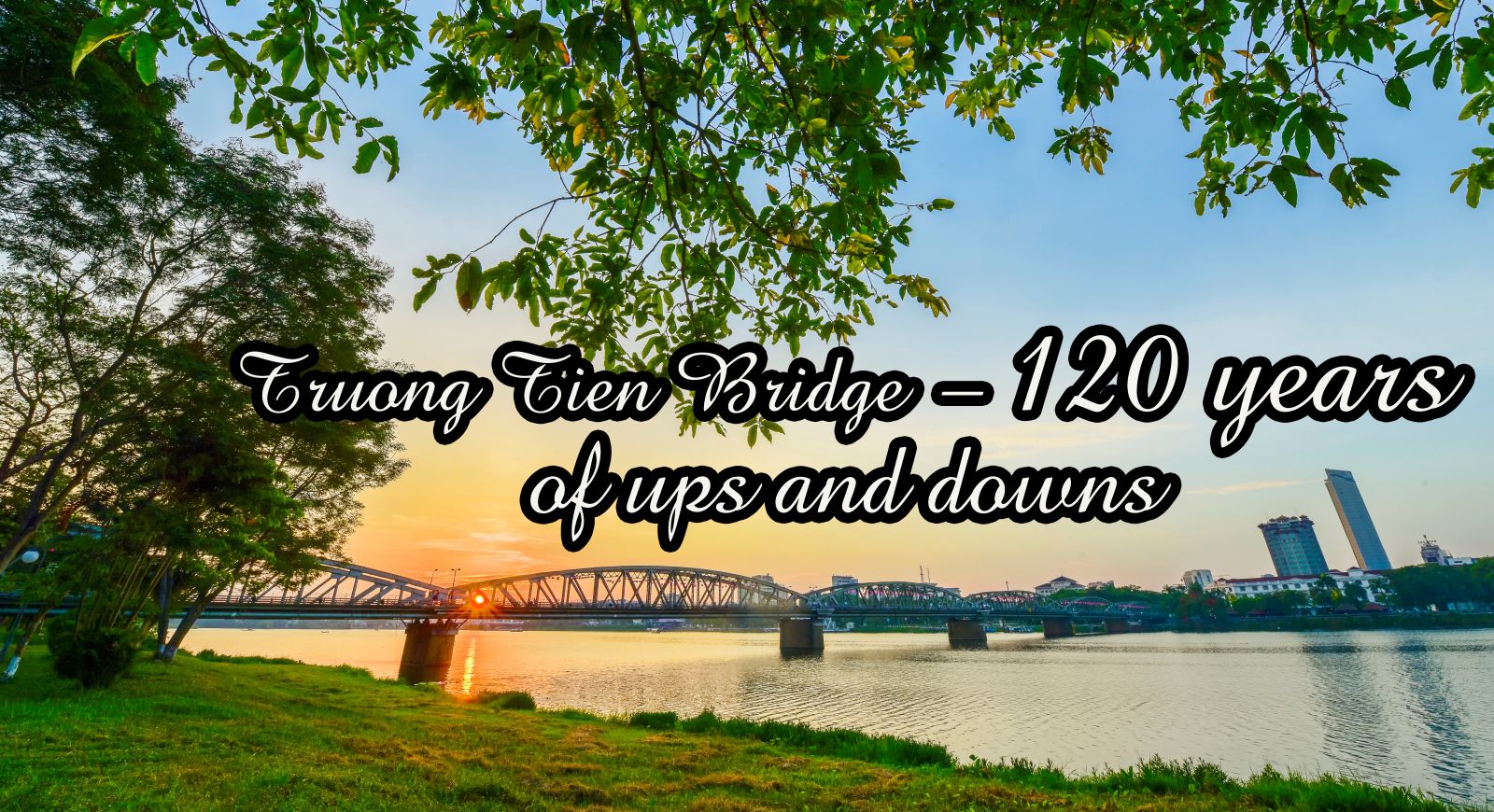
Going through innumerable ups and downs and historical events, Truong Tien Bridge, the witness of Hue, is 120 years old this year. Time changes everything, but the bridge over the romantic River of Perfume is still there, calmly watching the changing life.

ne cannot talk about Hue without mentioning Truong Tien Bridge. It is like a “living milestone” in the center of the ancient capital city. The “ivory comb” becomes a landmark for Hue people to judge where they are. It is said that tourists to Hue are just like passers-by if they have not yet set foot on the bridge.
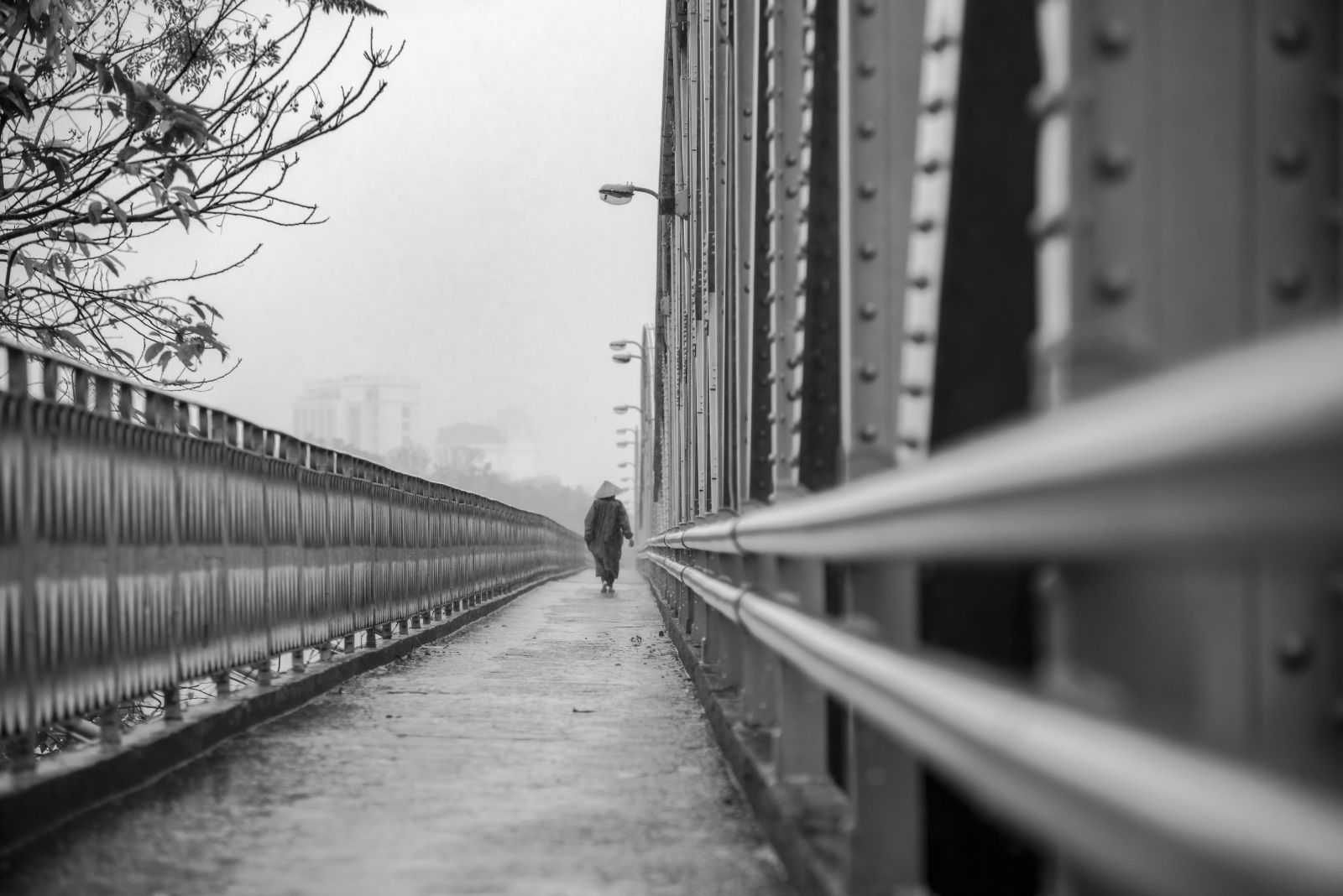
In the most recent repair in 2017, people were happy to see many items which had been destroyed before were revived and some wrongdoings were corrected.

Back to the past, the construction of Truong Tien Bridge was started in 1897 and finished in 1899, during Emperor Thanh Thai’s Era. The bridge was designed and constructed by Eiffel Company (France), with the 6 steel arches on each side and the floor was paved with ironwood.
At the time the bridge was completed, it was 402 meters long. The bridge was extremely significant in that it was the first one spanning the Perfume River, starting a new stage of development for Hue and marking the end of a long time crossing the river by boat with lots of difficulty.
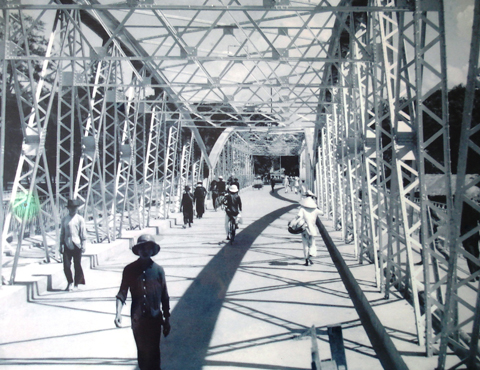
Building a bridge over the Perfume River at the time was extremely hard, not only because of technology, but also how to make the bridge in harmony with the graceful and poetic river. However though meeting those criteria, the bridge soon fell into a tragic situation after just 5 years: the hurricane in the Year of Dragon (1904) blew up the four spans of the bridge into the river. The bridge had not been repaired until 1906, and the wooden floor was then replaced by concrete.
Thirty-one years later, in 1937, under the reign of the last emperor of the Nguyen Dynasty, Bao Dai, the bridge was in repair again. This time, the two corridors for cyclists and pedestrians were added. A while later in 1946, the bridge was destroyed again, following the schorched-earth policy. The bridge was then thoroughly repaired in 1953.
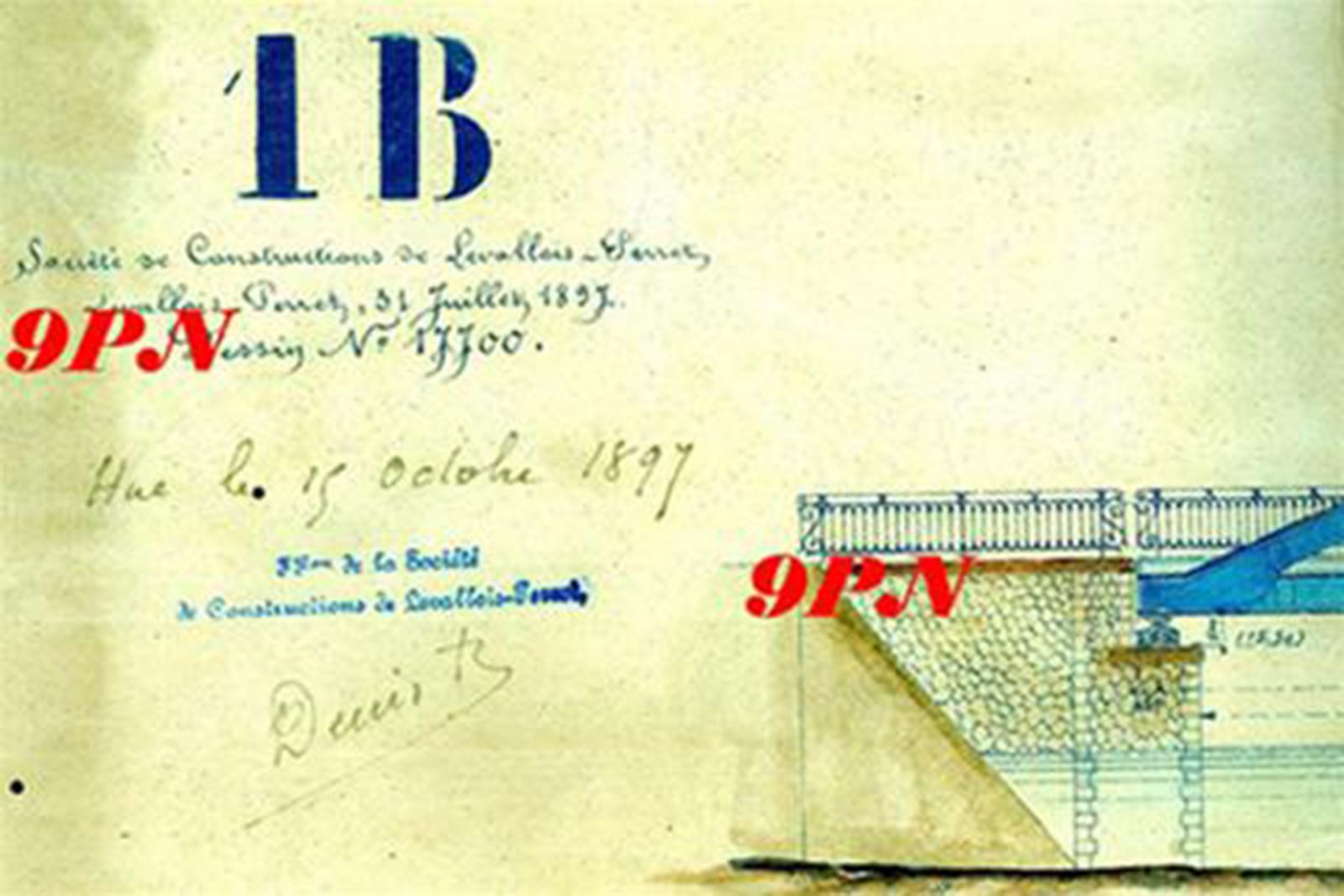 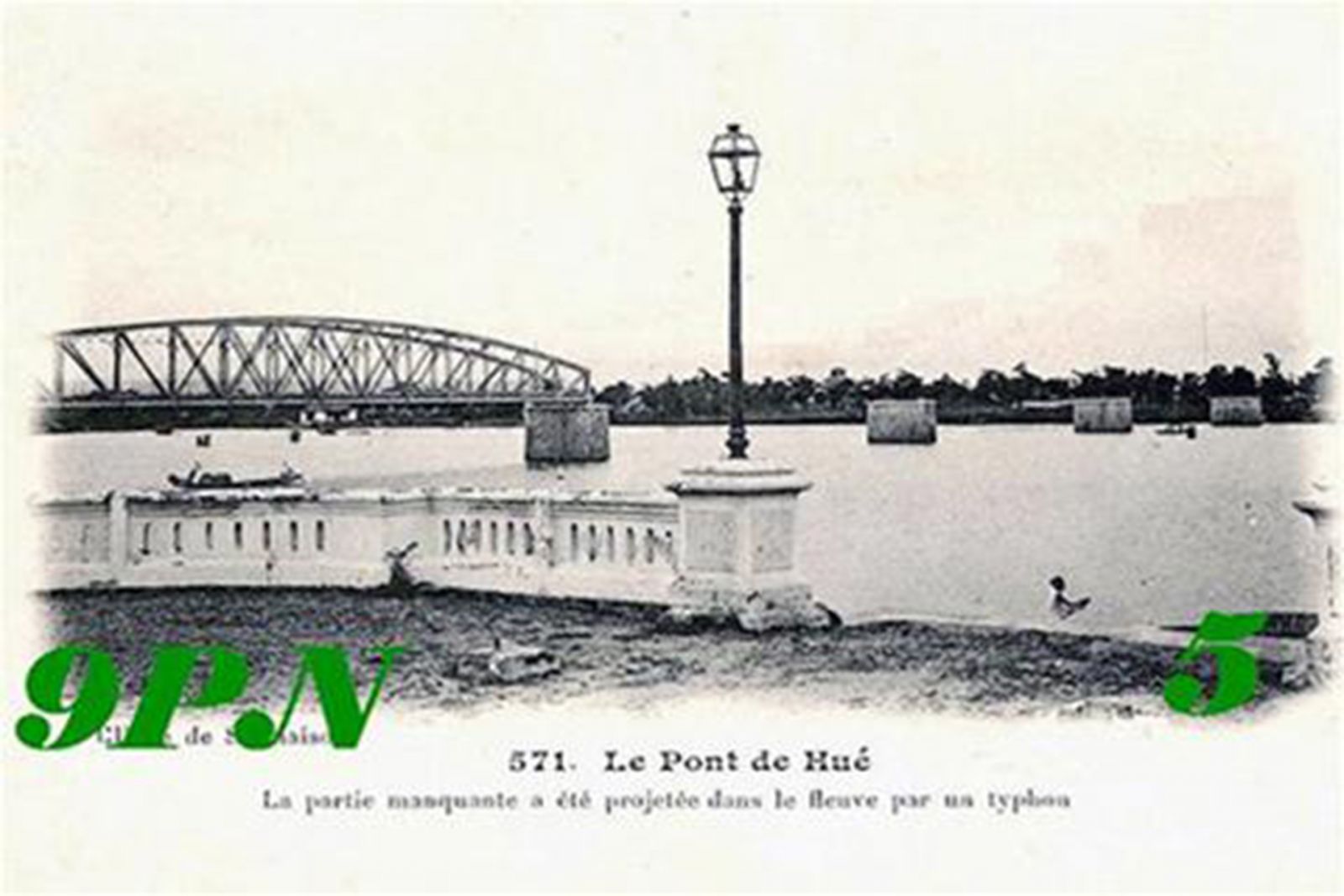 |
But it must be fate. In the Spring of 1968, the 3rd and 4th spans were destroyed again by the People’s Liberation Armed Forces of South Vietnam to cut off the route of the enemy. Since then until 1991, the ruined part was paved temporarily with wood. In 1991, the Department of Transport decided to revive completely the historic bridge of Truong Tien.

.jpg) 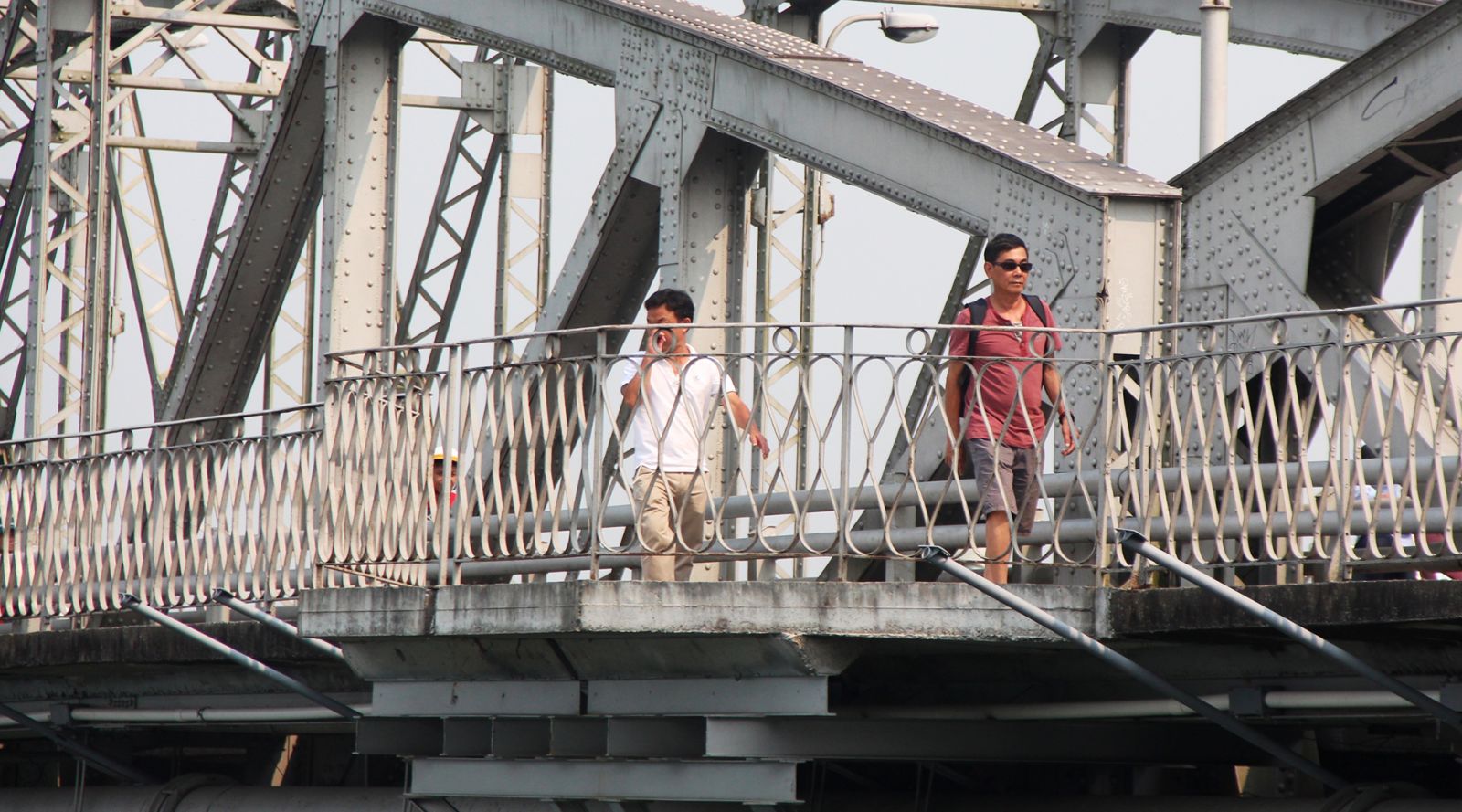 |
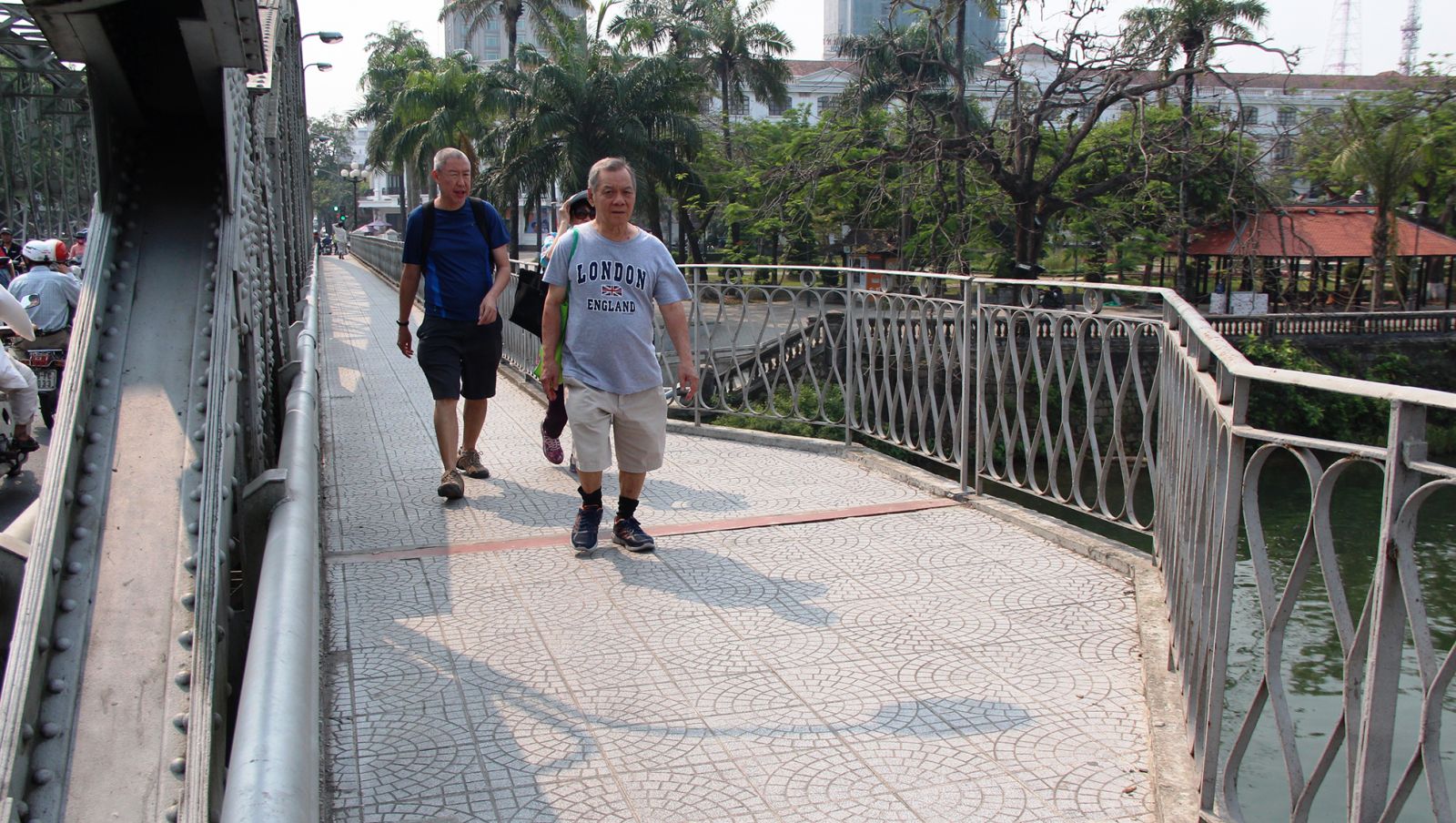 |

Besides being a historic symbol of Hue City, Truong Tien performs an important function of carrying people and vehicles from this side to the other. More than that, Truong Tien Bridge serves as a destination of culture, a majestic stage which directors and event managers always desire in Hue.
Truong Tien Bridge becomes a dreamy and sparkling stage with lights reflecting on the water at night. We still remember the art performances with charming ao dai or the installation with fire in the melody of the song La Narche by Carrabosse Company (France). The performances made the bridge a colorful space both luxurious and ancient.
It is easy to understand why artists want to perform right on this historic bridge, which is originally romantic by itself and a special construction of Hue City with many historical and cultural values found nowhere else in the country.
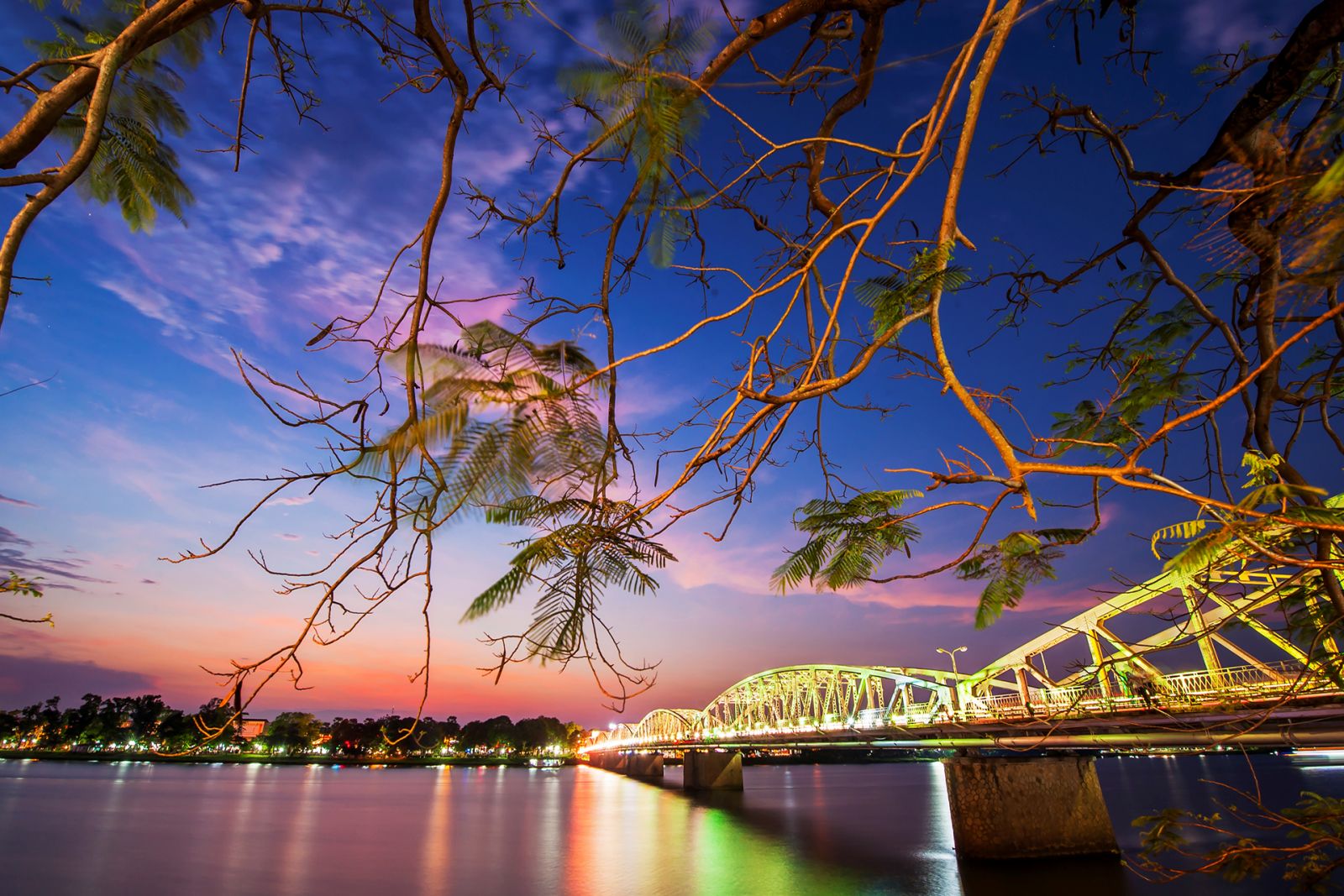 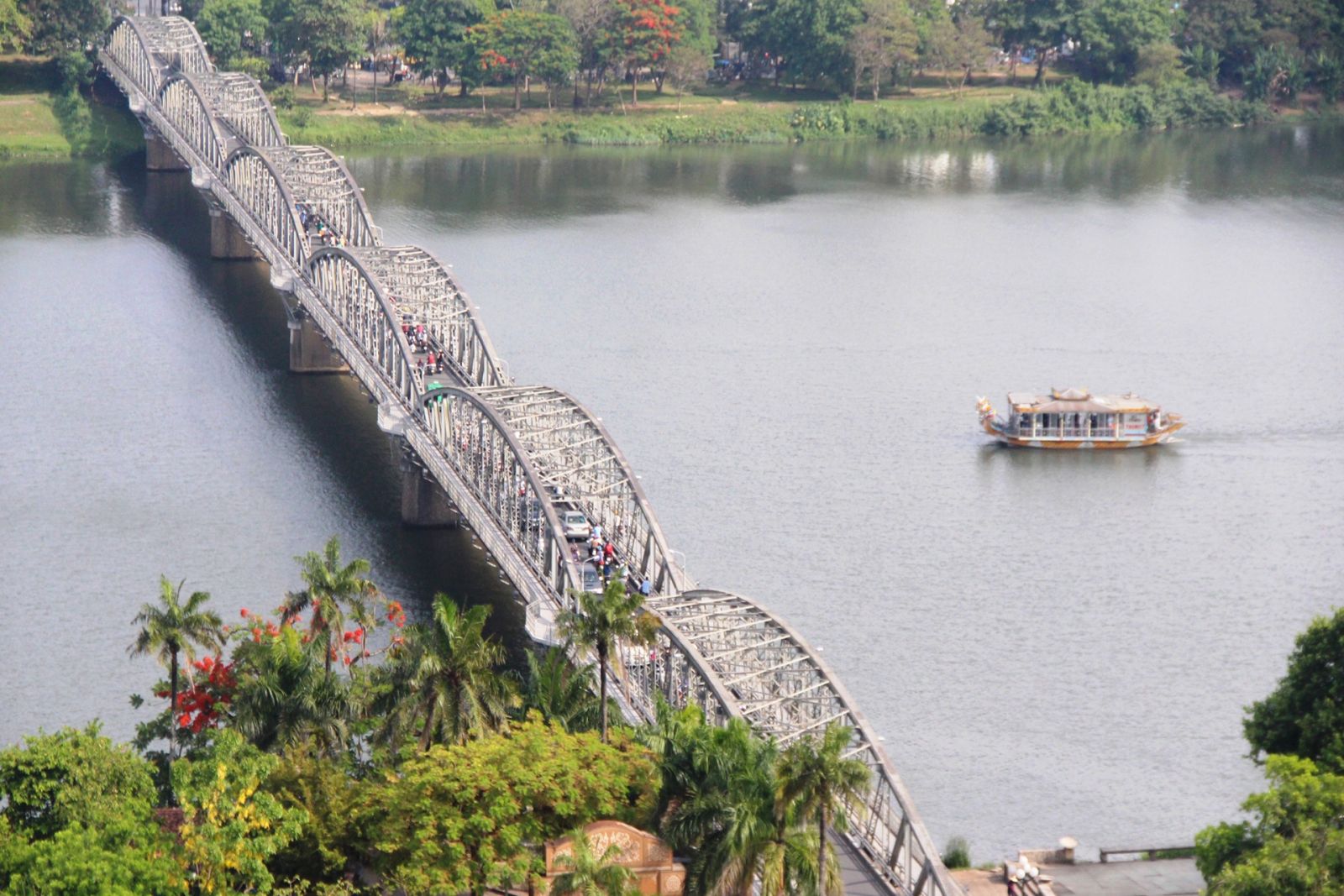 |
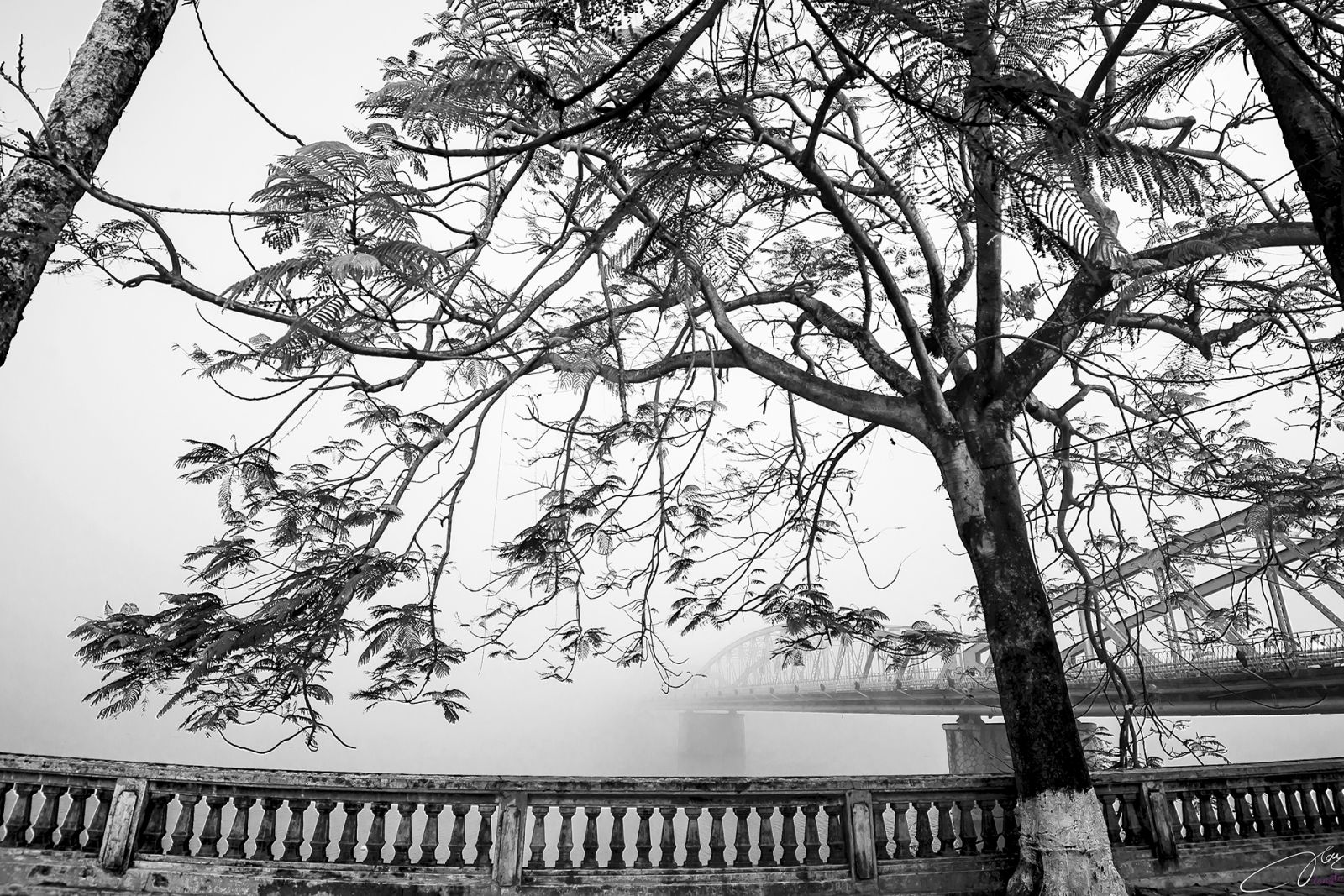 |
Together with the Perfume River, Truong Tien Bridge is like a brand name that everyone who comes to visit Hue remember.
The bridge shows its different beauties at different moments and in different seasons, especially in early dewy mornings. It has been existing with people for such a long time and a space for poetry, music and art, very beautiful but so melancholy.
(“Truong Tien Bridge with 6 supporters and 12 spans
Poor me; it’s too long; I can’t catch up with you
I have been so far suffering from a bad reputation
If we are apart, then it’s because of Heaven.”
(Folk verses. According to some other documents, this is composed by Mr. Do Huy Lieu from Nam Dinh)
.JPG)
In 1941, during his time in Hue, Nguyen Binh the poet compared the curved shape and the original silvery color of the bridge to an ivory comb in his poem “Some sketches of Hue”:
“The bridge is curved like an ivory comb
The river is long like the loose hair of a nymph...”
The historical ups and downs of the bridge was also recorded. In 1946, when the bridge was destroyed, there appeared the folk verses like this:
“We have been crossing Truong Tien Bridge for so many years
Since Thanh Thai’s Era now
So depressed who we can ask
Why destroyed the bridge?”
Reply:
“Determined to win the French
So, this bridge must be destroyed,
There are many other ways to cross the river
Don’t be sad, darling
When our country is reconstructed
Building the bridge again is easy, darling...”
The Perfume River is still flowing. Life is quietly passing. And Truong Tien the witness is still be there in the ancient capital city.
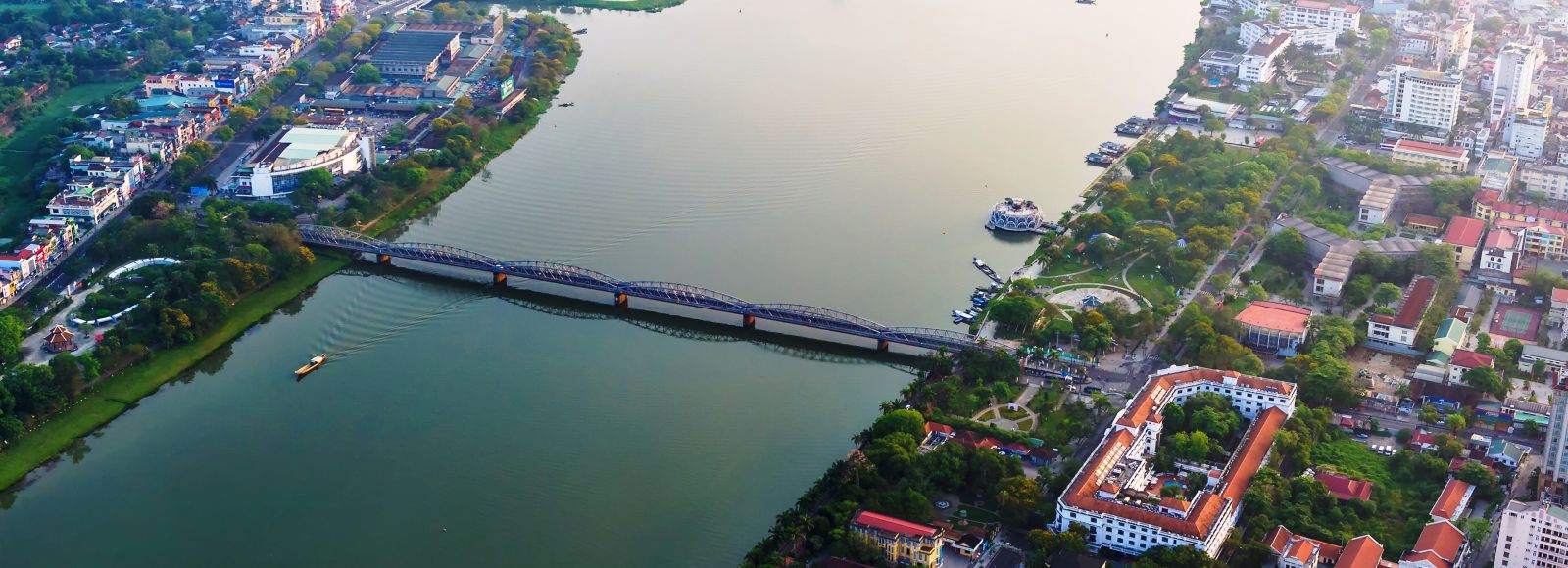
Content: PHAN THANH - Photos by HOANG HAI, PHAN THANH, DOCUMENTARY PHOTOS
Design: MINH QUAN

